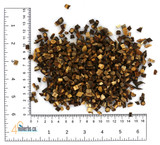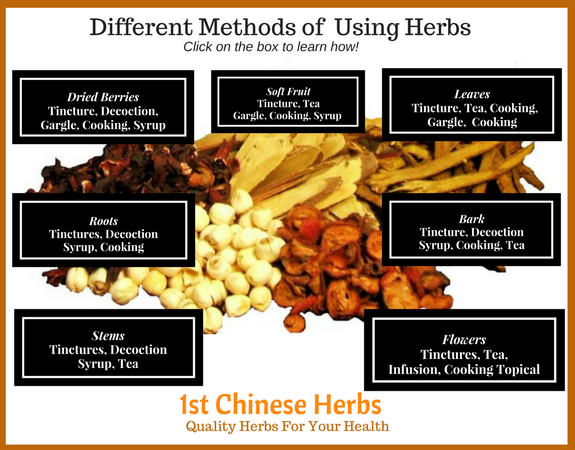Cinnamon Cassia Twig: A Traditional Remedy for Health and Wellness
Cassia twig, also known as "Gui Zhi" in traditional Chinese medicine, is the bark of the Cassia tree (Cinnamomum cassia). It is a widely used herb in traditional Chinese medicine and is often used for its warming properties. Cassia twig is commonly used to promote circulation, alleviate pain, and treat conditions like arthritis, colds, and influenza. It's also sometimes used in cooking, particularly in Chinese cuisine, to add flavor to dishes.

Cinnamon goes beyond its ordinary function as a mere spice. The medicinal properties of cinnamon are truly remarkable.
-
Antioxidant Properties: Cinnamon is rich in polyphenols, which have potent antioxidant effects. These compounds help combat oxidative stress and reduce inflammation in the body, which can contribute to various chronic diseases.
-
Anti-inflammatory Effects: Cinnamon contains compounds like cinnamaldehyde and cinnamic acid, which possess anti-inflammatory properties. These compounds may help reduce inflammation and alleviate symptoms of inflammatory conditions like arthritis.
-
Blood Sugar Regulation: Cinnamon has been shown to improve insulin sensitivity and lower blood sugar levels by increasing glucose uptake into cells and inhibiting enzymes that digest carbohydrates. This makes it beneficial for individuals with diabetes or those at risk of developing the condition.
-
Antimicrobial Activity: Cinnamon has natural antimicrobial properties due to its high concentration of compounds like cinnamaldehyde. It can help inhibit the growth of bacteria, fungi, and viruses, making it useful for combating infections and preserving food.
-
Heart Health: Some studies suggest that cinnamon may help lower levels of LDL (bad) cholesterol and triglycerides, while also improving HDL (good) cholesterol levels. These effects may contribute to a reduced risk of heart disease.
-
Neuroprotective Effects: Cinnamon contains compounds that have been shown to protect neurons from oxidative stress and reduce the accumulation of protein plaques associated with Alzheimer's disease. It may also help improve cognitive function and memory.
-
Digestive Health: Cinnamon has been traditionally used to alleviate digestive discomfort, such as bloating, gas, and indigestion. It may help improve digestion by stimulating the production of digestive enzymes and reducing inflammation in the gastrointestinal tract.
Herbal Information for Organic Cinnamon in Cut Form
Product Description
Common Name: Cinnamon
Botanical Name: Cinnamonum Cassia; Ramulus
Channels/Meridians: Heart, Lung, Bladder
Other Names: Cassia Twig, “Medical Saint”
Pin Yin Name: Gui Zhi
Other Ingredients: None, nothing has been added to this product.
Package Size: 1 pound
Form: Cut / Sliced, not uniform pieces.
Origin: China
Brand: Nuherbs Lab Test - Geo-Authentic Herbs
Cautions: Do not use if pregnant or nursing.
Consuming large amounts of cassia cinnamon regularly may potentially lead to liver damage or other health issues. Cinnamon supplements may interact with certain medications, including blood thinners like warfarin.
Cinnamon can also affect blood sugar levels, so individuals taking medications for diabetes should monitor their blood glucose closely when consuming cinnamon regularly.
Naturally Occurring Components: benzyl benzoate, cinnamyl acetate, β-cadinene, calamenene, coumarin
Summary of Cinnamon
- Supports Digestion
- Helps to maintain healthy blood sugar levels when used as part of your diet
- Warms the Channels
- Facilitate flow in blood vessels
- Disperse Cold
- Acts as an appetite stimulate
- Supports sexual health
- Functions as an antibacterial agent
- Assists in moving energy stagnation
- Aids in relieving chest congestion
Product Properties: Acrid, Sweet, Warm
Cinnamon has a rich historical background that dates back thousands of years
-
Ancient Civilizations: Cinnamon was highly prized in ancient civilizations such as Egypt, where it was used in embalming processes and as a component of incense. It was also mentioned in ancient Chinese botanical texts as early as 2800 B.C.
-
Trade Routes: Cinnamon was one of the most sought-after spices during the ancient and medieval periods. Its origin was often shrouded in mystery and myth, with traders in ancient times often fabricating stories to maintain their monopoly over its trade. The spice was initially brought to Europe through elaborate and lucrative trade routes from the Far East.
-
Middle Ages: During the Middle Ages, cinnamon became a symbol of wealth and luxury in Europe. It was used not only as a flavoring agent but also as a status symbol among the nobility. Its high cost and exclusivity made it a highly prized commodity.
-
Exploration and Colonization: The search for alternate trade routes to the East, particularly for spices like cinnamon and pepper, was one of the driving forces behind the Age of Exploration. European powers, such as Portugal and Spain, sought direct sea routes to the spice-producing regions, leading to the discovery of new lands and the establishment of colonial empires.
-
Colonial Trade: European colonial powers established spice plantations in regions like Sri Lanka (formerly Ceylon), where cinnamon trees grew abundantly. These plantations were often worked by forced labor, including slaves and indentured servants, leading to exploitation and abuse.
-
Modern Cultivation and Trade: Today, cinnamon is cultivated primarily in several tropical regions, including Sri Lanka, Indonesia, China, and Vietnam. Sri Lanka remains one of the largest producers of cinnamon, particularly Ceylon cinnamon, prized for its mild flavor and lower coumarin content compared to cassia cinnamon.
-
Culinary and Medicinal Uses: Throughout its history, cinnamon has been valued not only for its culinary uses but also for its medicinal properties. It has been used in traditional medicine systems around the world to treat various ailments, including digestive issues, inflammation, and infections.
Cassia is a type of cinnamon. Cassia is prepared from the dried inner bark of a certain evergreen tree. Cassia is mostly used in the form of a powder obtained from the bark and essential oil derived by steaming leaves, seeds, twigs and flowers which is termed as Cassia powder. Cassia bark is utilized as a flavoring agent in confectionery, pastries and meat. It tends to be a dark brown-red in color with thicker sticks and a rougher texture.
Cassia twig is also a very common ingredient in tonic herbal blends and classic Chinese formulations.
When using the whole bark or twig slices in home brews and tonic tea formulas, it is important to decoct or simmer them on very low heat as over-boiling will compromise beneficial compounds.

Cold Winter Nights Cinnamon Tea
Cinnamon Twig Herbal Tea
Ingredients:
- 10 grams cinnamon twig (Gui Zhi)
- 5 grams dried ginger slices (Gan Jiang)
- 5 grams licorice root (Gan Cao)
- 3-4 dried red dates (Hong Zao)
- 1 liter water
Instructions:
- Rinse all the herbs under cold water to remove any dirt or impurities.
- In a pot, add the cinnamon twig, dried ginger slices, licorice root, and dried red dates.
- Pour 1 liter of water into the pot.
- Bring the water to a boil over medium-high heat.
- Once boiling, reduce the heat to low and simmer the herbal tea for about 20-30 minutes, allowing the flavors to infuse into the water.
- After simmering, remove the pot from the heat and let the tea cool slightly.
- Strain the herbal tea into cups or a teapot, discarding the herbs.
- Serve the warm herbal tea and enjoy its soothing and aromatic flavors.
This herbal tea is commonly consumed in traditional Chinese medicine for its warming properties, which are believed to help improve circulation, alleviate pain, and promote overall well-being. It's a comforting beverage, especially during colder weather or when feeling under the weather. As with any herbal remedy, it's advisable to consult with a healthcare professional, particularly if you have any existing medical conditions or are taking medications.
Check out our How to Use Bulk Herbs page to see how to use herbs correctly.
Each batch of herbs is dual-lab tested by our in-house lab and independent third party lab. Our in-house lab is equipped with instruments such as a high performance liquid chromatography, moisture determination meter, Fourier transform infrared spectrometer, atomic absorption spectrophotometer, gas chromatograph, etc.
In addition, the following additional tests are performed:
- Micro bacteria
- Pesticides - over 200 pesticides tested for (Uab 2000 screen).
- Heavy Metals - Lead, Mercury and Arsenic
Traditional Chinese Herbs encompasses the use of different parts of plants, such as the leaves, roots, stems, flowers, and seeds. These plant parts are often used as a tea, decoctions, extracts, made into capsules or even a footbath. These bulk herbs should be regarded as an added feature to modern western healthcare, and not as a replacement. Chinese traditional herbs ( Teas ) emphasize harmony and balance.
We encourage you to educate yourself on herbs and supplements, by researching reputable sites, and books. Having an open discussion with your physician on what will be most beneficial for your health issues. And lastly discussing interaction of herbs and pharmaceuticals with your pharmacist or physician.
Reference:
https://tcmwiki.com/wiki/cassia-twig
https://bmccomplementmedtherapies.biomedcentral.com/articles/10.1186/s12906-018-2096-x
https://www.ncbi.nlm.nih.gov/pmc/articles/PMC6804248/
























